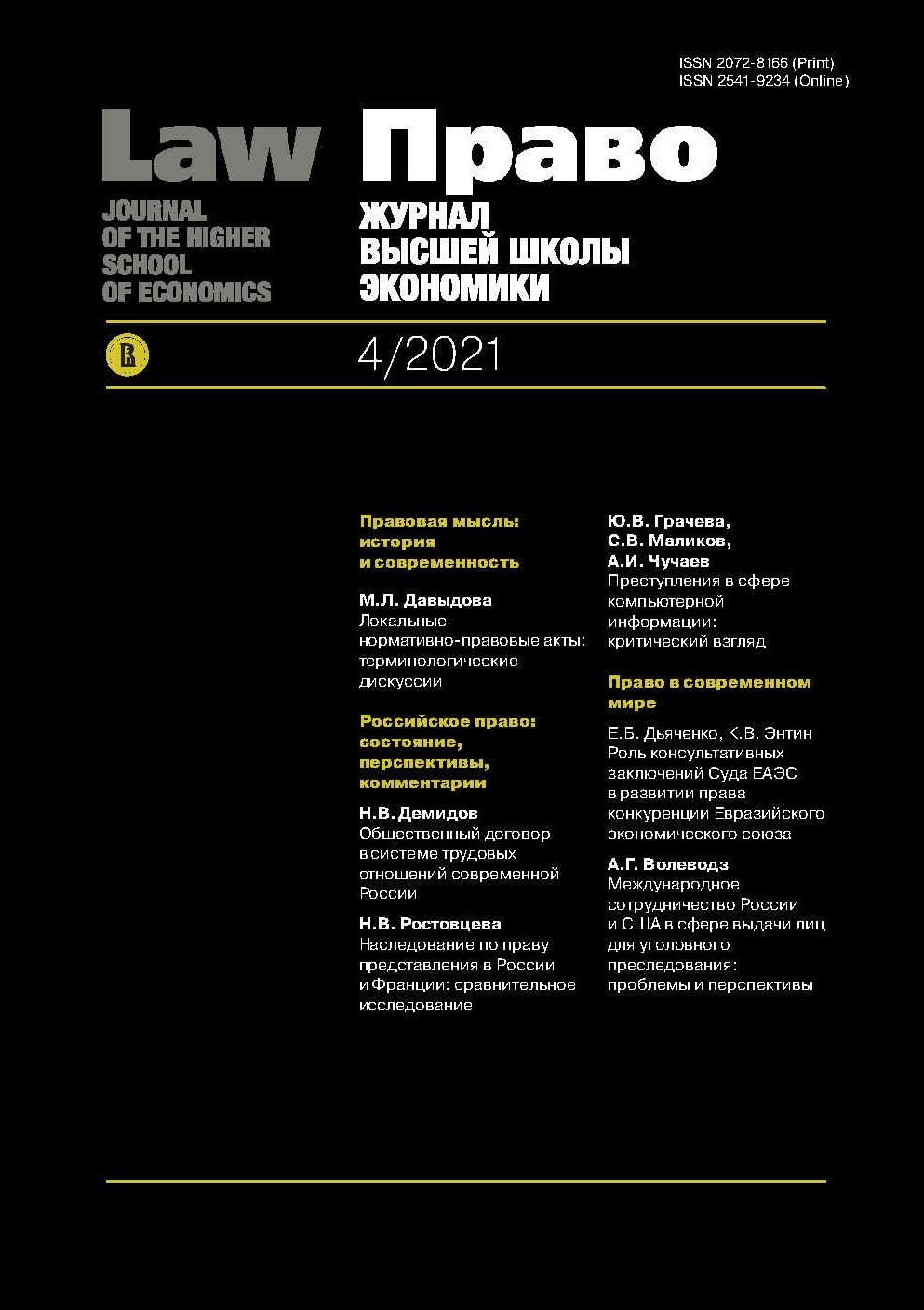Property Legitimate Expectation as a Basis for the Application of Real Action
Keywords:
civil law, property law, real action, legitimate expectation, legitimate interests, action for the acquisition of the property right, protection of right, comparative law
Abstract
The subject of the study is the norms of civil law regulating the acquisition of the right in rem and its protection. The article argues the idea of the admissibility of the application of real actions to protect the legitimate expectation of a person on a level with the right and legitimate interest. Comparative legal method, the method of case study and the method of systematization became the methods of research. In the system of real actions legitimate expectations are protected by the action for the acquisition of the property right. It is applicable when a person has committed all necessary and sufficient actions to acquire the right, but by virtue of the prescription of the legislation requires a judicial establishment of the right in rem. Therefore, it is permissible to distinguish such a type of legal expectation as a property legitimate expectation. Peculiarities of property legitimate expectation, which distinguish it from the legitimate expectation, consist in several aspects. Firstly, property legitimate expectation is aimed at the acquisition of a right in rem. Secondly, property legitimate expectation is aimed at such acquisition, which is carried out only through a judicial establishment of the existence of the entire necessary totality of legal facts. Thirdly, the property legitimate expectation introduces legal certainty, through the decision on the completeness of the process of acquisition of the right in rem. The construct of legitimate expectation is developed at the level of judicial doctrine, because it is applied by the courts in a situation where there is no specific rule of law to provide protection to the legitimate expectation. This doctrine is based on the principles of law — legal certainty and good faith. The correlation of legitimate interest and legitimate expectation is manifested in the fact that they are aimed at creating a new right. The legitimate expectation is a more concrete legal phenomenon than the legitimate interest, which is more abstract. As part of the application of real actions, legitimate interest serves as a legal basis for an action for the termination of the property right. Having conducted a comparative legal study, it can be argued that the property legitimate expectation is known in the law of the countries of continental Europe and in common law countries; examples are, in particular, the German «Anwartschaftsrecht», common law categories of «future interest», «doctrine of acceleration» and «remainder».For citation: Podshivalov T.P. Property legitimate expectation as a basis for the application of real action. Law. Journal of the Higher School of Economics. 2021, vol. 13, no. 4, pp. 102– 123. (In Russ.). DOI: 10.17323/2072-8166.2021.4.102.123
Published
2021-03-19
How to Cite
PodshivalovT. (2021). Property Legitimate Expectation as a Basis for the Application of Real Action. Law Journal of the Higher School of Economics, (4), 102-123. https://doi.org/10.17323/2072-8166.2021.4.102.123
Issue
Section
Russian Law: Condition, Perspectives, Commentaries





